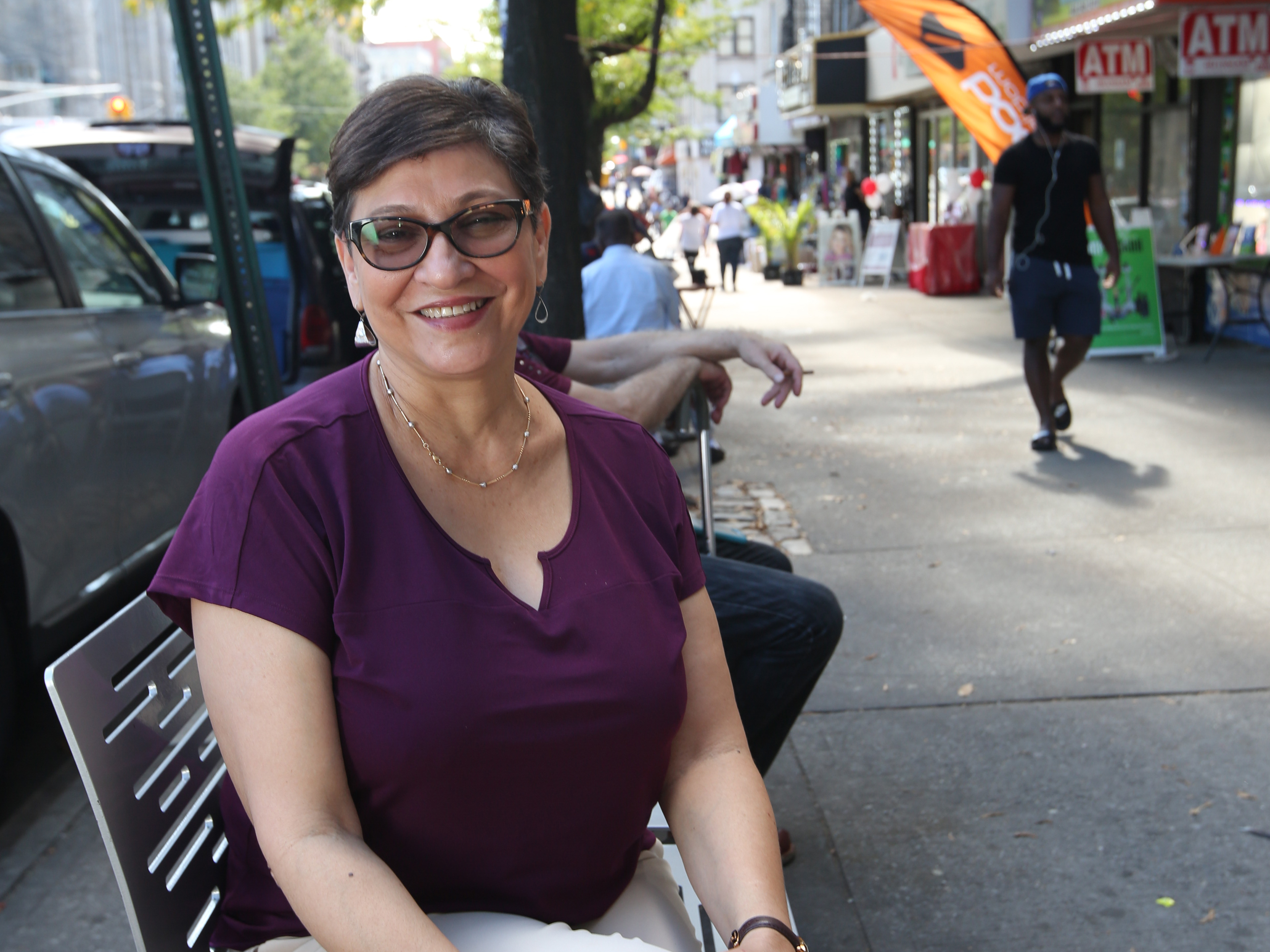The days after Hurricane Maria this past fall were tough ones for Dinelia Rosa. Her parents, both in their 80s, were unhurt – they have a strong concrete house outside of San Juan – but as Rosa moved through meetings and supervisions at Teachers College, “something stressful was going on for me culturally. I lost communication with them for a few days and found myself physically here but emotionally there.”
Rosa, Director of TC’s Dean Hope Center for Educational & Psychological Services, has spent her career reconciling such splits. She’s had help along the way – an opportunity that she believes has made her a culturally sensitive clinician and a major reason why she gives regularly to support students through the TC Fund. “I’m blessed, and I feel good that now I can give to somebody else,” she says. “I’d have TC on my list if I hit the Lotto.”
Rosa was born on Manhattan’s lower east side, but her family returned to Puerto Rico when she was six, and she attended college there as well. She has since focused on providing counseling to Latino families, co-founding the New York State Psychological Association’s Division of Culture, Race & Ethnicity and later serving as NYSPA’s first president of color in 2014. She’s also a past President of the New York Association of Hispanic Mental Health Professionals.
Coming from limited means, Rosa was nevertheless the first in her family to attend college and graduate school. She credits Pell grants and funding from the National Institute of Mental Health for enabling her to complete her education debt-free. In her earliest jobs in New York City, Latino psychologists mentored her in adapting what she’d learned from the regular American curriculum to the reality and experience of Latinos in the United States.
“No person is all good or all bad. Recognizing the cause of our pain, developing empathy for those that hurt us, and being able to recognize, accept and hold both good and bad feelings will make us better people and better therapists.”
— Dinelia Rosa
“Multicultural clinicians see it all the time,” she says. “Often our clients are here physically but not emotionally. They come here for different reasons, including financial ones, with the hope of accumulating resources to send home to their loved ones or to build a better tomorrow. While here, they’re not living in the here-and-now to the fullest, not developing roots, and sometimes the future never comes.”
Others may struggle with subtler issues of acculturation.
“What do you retain from the culture of origin, what do you get rid of? What do you feel forced to take on from American culture? These challenges are especially hard for teens, who need and seek acceptance from their peer groups even when most of the time what is required for acceptance may be in contradiction with the family belief system. This can create struggles at home and a sense of living a double life, one within the family and another in the outside world.”
The current climate around immigration has compounded such problems. “Let’s say you want to adapt to the new culture – yet you receive messages of rejection. You may develop what is called ‘healthy paranoia,’ or a response of mistrust based on real facts resulted from discrimination.”
Rosa, who grew up with a loving but sternly traditional father, believes in a therapy that bridges these divides.
“No person is all good or all bad,” she says. “Recognizing the cause of our pain, developing empathy for those that hurt us, and being able to recognize, accept and hold both good and bad feelings will make us better people and better therapists.”
In 1999, Teachers College hired Rosa to her current position – by her own estimation, a leap of faith for the College. “I felt strong about my clinical training and accumulated experiences but had no administrative experience, yet they saw leadership ability in me. I appreciated the opportunity. I’ve developed and felt appreciated at TC, and I’m grateful to work for an institution that’s committed to inclusion and diversity.”
On Rosa’s watch, the Dean Hope Center has become a major resource for TC students, employees and their families, and for surrounding diverse communities. The Center enables students from TC’s clinical, counseling, school psychology and reading specialist programs to do real-world case work with these clients, buttressed by TC’s recently developed Bilingual Latina/o Mental Health concentration in the Counseling Psychology program. Rosa teaches the applied Spanish-bilingual counseling practicum for the program, which is the only one in New York State offering culturally appropriate training in delivering mental health services in Spanish to Latinas/os.
“We owe it to share our wisdom with people who will continue in this line of work,” says Rosa referring to this new concentration. “We’re helping them integrate what they learn in the community with what they learn here – and that didn’t exist before.”
View more Donor Profiles >
